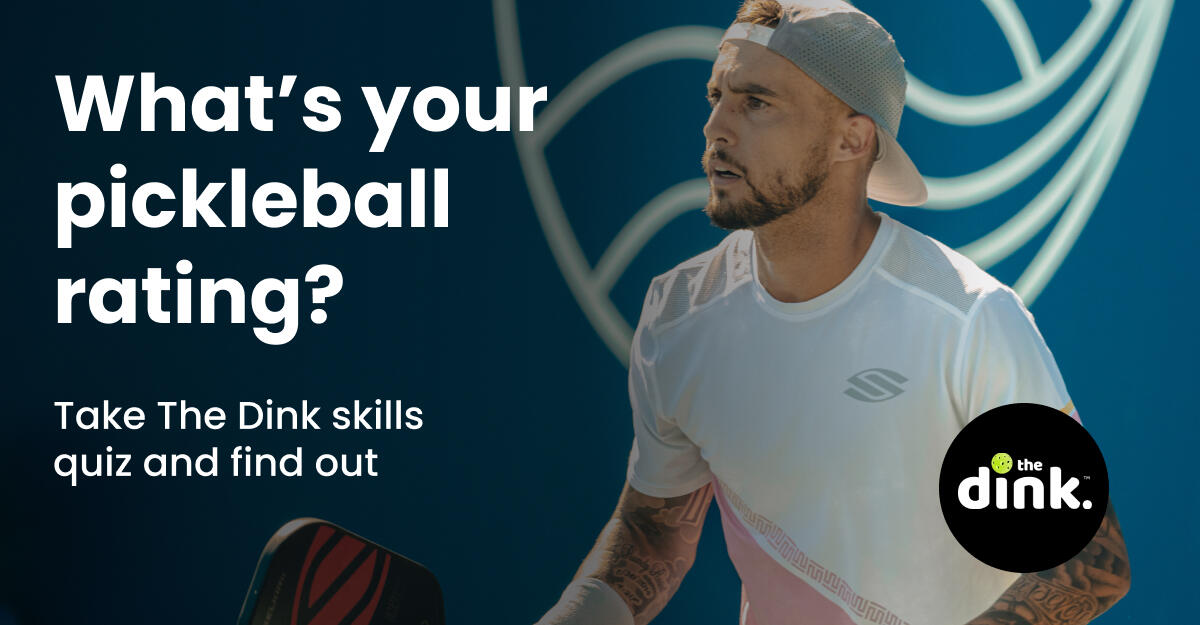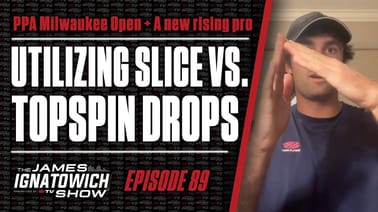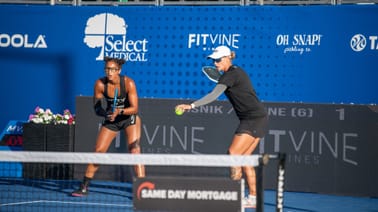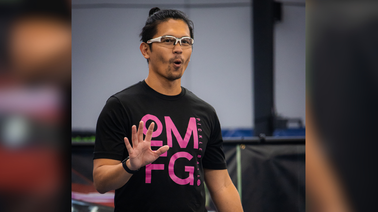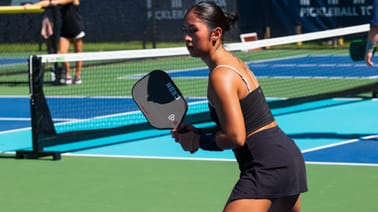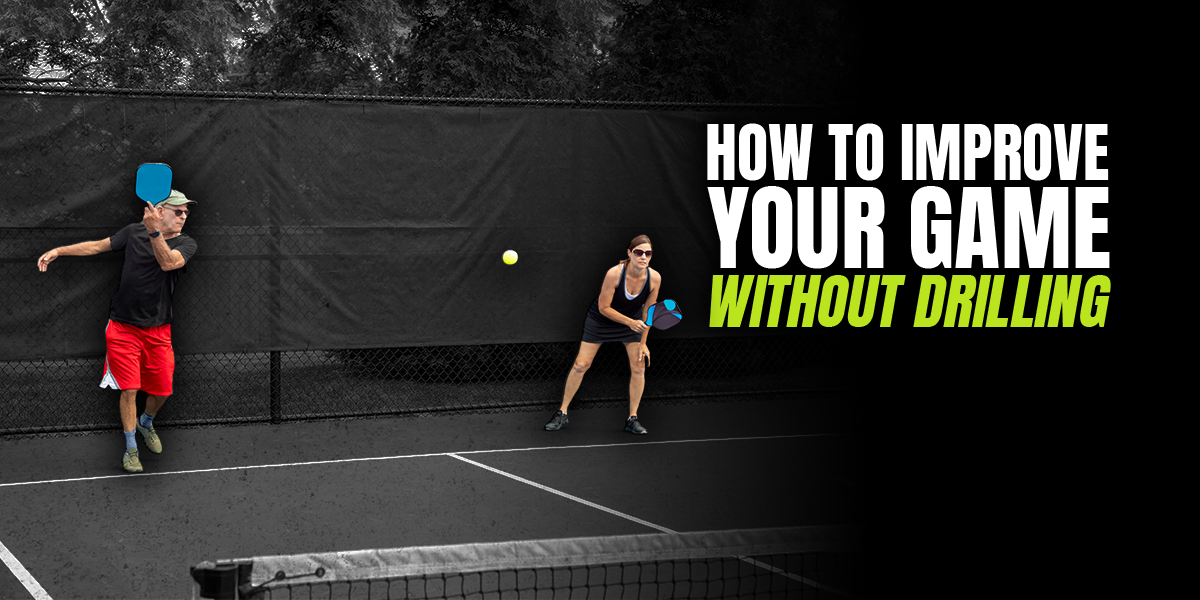
No Time to Drill? There Are Still Plenty of Ways To Improve Your Pickleball Game
As you might know, we at The Dink are big proponents of drilling to improve your pickleball game.
However, we also realize that not everyone a) wants to drill and b) has time to drill.
If you're in either the A or B group – we got you.
Here are some things you can do – both on and off the court – to get better without wasting your precious pickleball time doing dumb ol' drills.
Choose a focus for every game
Before you play any game, consider which shot, technique, or strategy you want to improve that day.
Maybe you've been struggling with your backhand return of serves or want to be more patient trying to work up to the kitchen when your team is serving.
You can do specific things during your game to help you emphasize that focus.
For example, if you want to work on your backhand return of serve, you should stand in a spot that provides more open space on your backhand side. If you're right-handed and playing on the left, stand closer to the centerline when your opponent is about to serve. If you're on the right, stand closer to the sideline.
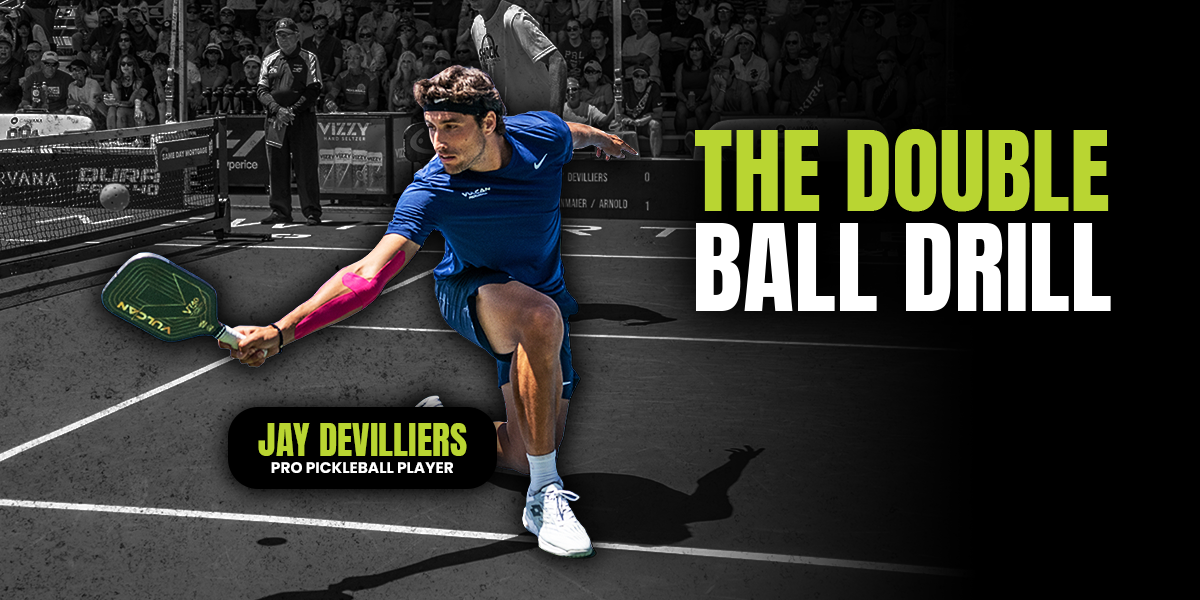
Reverse if you're lefthanded.
If patience getting to the line has been an issue, force yourself to stop (split step) while in the transition zone and hit one more ball before working to the kitchen.
Will you struggle a bit? Absolutely.
But, whenever you want to improve something, you must put yourself in an uncomfortable situation.
If the game starts getting out of hand or you're suddenly worried about losing the match, go back to playing your regular game. However, find that point of focus again before the next game.
Remember, your goal is to get reps at the thing you're working on that day. Even if you only get 5-10 chances more than usual, that's still 5-10 more than usual.
That's the goal – do more of what you're weakest at, so that someday you will be better at that element of your game.
Watch yourself or others play
If you can, you should record yourself playing.
Every one of us looks slower and less athletic on film than we imagine in our heads, which isn't a bad thing.
You can learn a lot by watching yourself.
For example, maybe you didn't know that after you speed a ball up, you tend to hold your paddle down at your hip instead of up and ready for the next ball.
That tendency is easily fixed by knowing it exists and then focusing on keeping your paddle up throughout an entire game.
If you can't record yourself, watch others (or pros) play. What do you notice about them that you like and dislike?
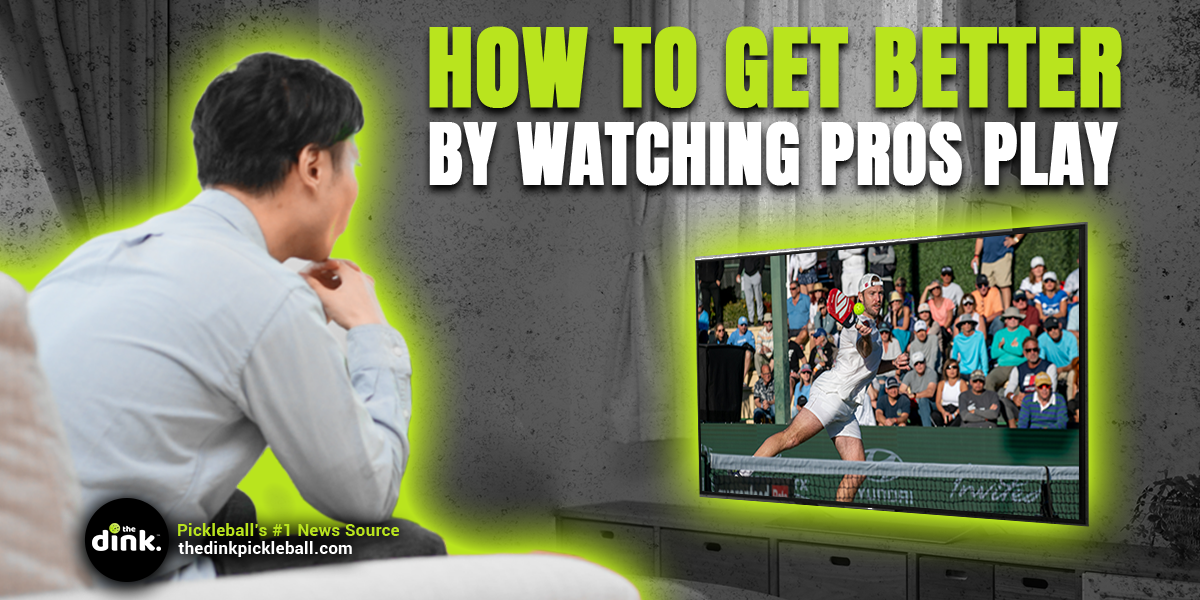
What choices do they make at specific parts of the court?
Consider copying the good and making sure you stop doing the bad.
With YouTube, you can spend your lunch break or sip coffee while watching pros break down their games and provide insights you may never have noticed.
When you can't play, picture yourself playing and doing the things that you want to on the court. It won't be long until that mental picture becomes a reality.
Flexibility, footwork, and strength
Another way to improve your game without drilling – actually, without even being on the court – is to work on your flexibility, footwork, and/or strength.
Now, we're not telling you to sign up for a high-intensity workout class or dust off the old Bowflex machine.
Just keep it simple, light, and easy to execute daily.
When you're at home, whether in your office or just walking around, stretch more, lift some light weights, and practice shuffling your feet side-to-side.
Doing these once or twice a day can reap huge rewards in the long run.
Keep some small dumbbells or resistance bands near your office or favorite chair. This will remind you to pick them up every once in a while and, over time, help you increase your strength and improve your health.
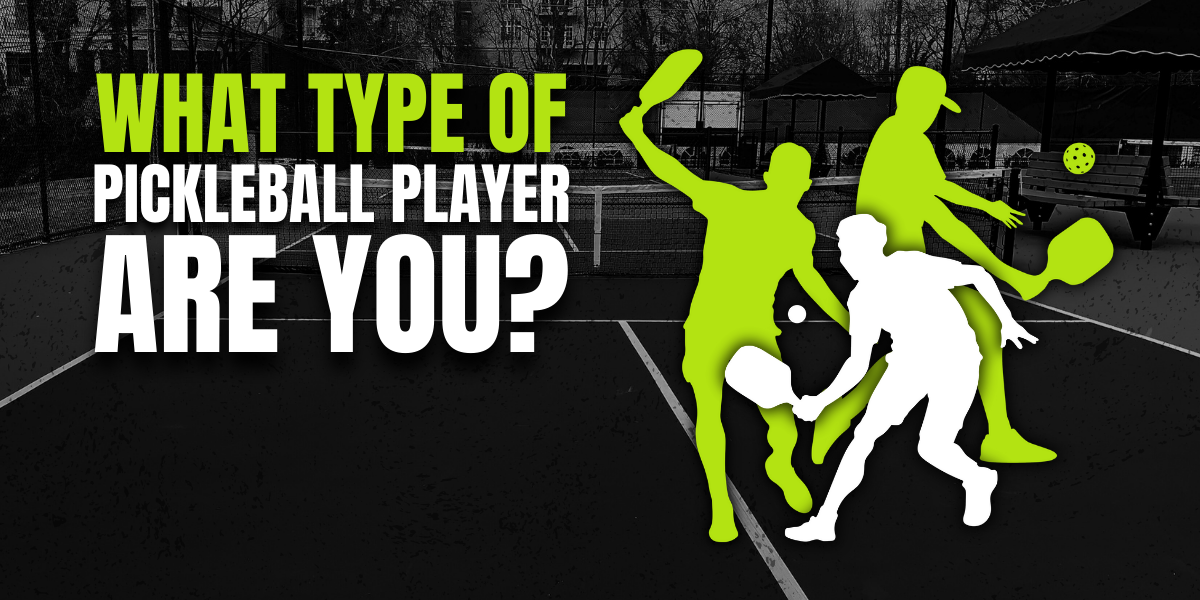
Having a stronger wrist can improve your pickleball volleys. More flexibility can help reduce injury (keep you in the game) and improve your footwork.
Talk about the game with other players
Lastly, it would help if you discussed pickleball with your fellow players.
Picking your playing partner's brain after a game might clue you into a strategy or reveal an opponent's weakness you hadn't noticed.
For example, if you see your partner targeting a specific player or part of the court, ask them why. Just do it nicely so they don't think you're trying to criticize them.
You're trying to learn, and having those conversations will make you both better players. Developing a mind for pickleball can be just as beneficial (and rewarding) as getting out and playing.
Oh, and if you get a chance, maybe do some drilling from time to time to really improve your game. Just kidding. Who has time for that?
